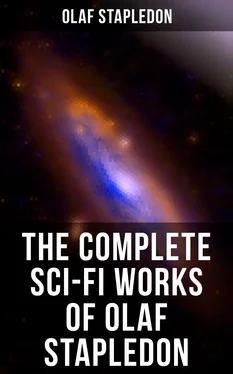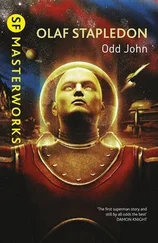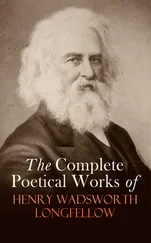Olaf Stapledon - The Complete Sci-Fi Works of Olaf Stapledon
Здесь есть возможность читать онлайн «Olaf Stapledon - The Complete Sci-Fi Works of Olaf Stapledon» — ознакомительный отрывок электронной книги совершенно бесплатно, а после прочтения отрывка купить полную версию. В некоторых случаях можно слушать аудио, скачать через торрент в формате fb2 и присутствует краткое содержание. Жанр: unrecognised, на английском языке. Описание произведения, (предисловие) а так же отзывы посетителей доступны на портале библиотеки ЛибКат.
- Название:The Complete Sci-Fi Works of Olaf Stapledon
- Автор:
- Жанр:
- Год:неизвестен
- ISBN:нет данных
- Рейтинг книги:5 / 5. Голосов: 1
-
Избранное:Добавить в избранное
- Отзывы:
-
Ваша оценка:
- 100
- 1
- 2
- 3
- 4
- 5
The Complete Sci-Fi Works of Olaf Stapledon: краткое содержание, описание и аннотация
Предлагаем к чтению аннотацию, описание, краткое содержание или предисловие (зависит от того, что написал сам автор книги «The Complete Sci-Fi Works of Olaf Stapledon»). Если вы не нашли необходимую информацию о книге — напишите в комментариях, мы постараемся отыскать её.
Novels:
Last and First Men: A Story of the Near and Far Future
Last Men in London
Odd John: A Story Between Jest and Earnest
Star Maker
Darkness and the Light
Sirius: A Fantasy of Love and Discord
Death into Life
Short Stories:
The Flames (1947)
The Seed and the Flower
The Road to the Aide Post
A Modern Magician
East is West
A World of Sounds
Arms Out of Hand
The Complete Sci-Fi Works of Olaf Stapledon — читать онлайн ознакомительный отрывок
Ниже представлен текст книги, разбитый по страницам. Система сохранения места последней прочитанной страницы, позволяет с удобством читать онлайн бесплатно книгу «The Complete Sci-Fi Works of Olaf Stapledon», без необходимости каждый раз заново искать на чём Вы остановились. Поставьте закладку, и сможете в любой момент перейти на страницу, на которой закончили чтение.
Интервал:
Закладка:
Many more thousands of years passed before these difficulties and dangers were overcome. At length, however, the technique of supra-temporal experience was so perfected that every individual could at will practise it with safety, and could, within limits, project his vision into any locality of space-time which he desired to inspect. It was only possible, however, to see past events through the mind of some past organism, no longer living. And in practice only human minds, and to some extent the minds of the higher mammals, could be entered. The explorer retained throughout his adventure his own personality and system of memory. While experiencing the past individual’s perceptions, memories, thoughts, desires, and in fact the whole process and content of the past mind, the explorer continued to be himself, and to react in terms of his own character, now condemning, now sympathizing, now critically enjoying the spectacle.
The task of explaining the mechanism of this new faculty occupied the scientists and philosophers of the species for a very long period. The final account, of course, cannot be presented save by parable; for it was found necessary to recast many fundamental concepts in order to interpret the facts coherently. The only hint that I can give of the explanation is in saying, metaphorically of course, that the living brain had access to the past, not by way of some mysterious kind of racial memory, nor by some equally impossible journey up the stream of time, but by a partial awakening, as it were, into eternity, and into inspection of a minute tract of space-time through some temporal mind in the past, as though through an optical instrument. In the early experiments the fantastic speeding, slowing, and reversal of the temporal process resulted from disorderly inspection. As a reader may either skim the pages of a book, or read at a comfortable pace, or dwell upon one word, or spell the sentence backwards, so, unintentionally, the novice in eternity might read or misread the mind that was presented to him.
This new mode of experience, it should be noted, was the activity of living brains, though brains of a novel kind. Hence what was to be discovered ‘through the medium of eternity’ was limited by the particular exploring brain’s capacity of understanding what was presented to it. And, further, though the actual supra-temporal contact with past events occupied no time in the brain’s natural life, the assimilating of that moment of vision, the reduction of it to normal temporal memory in the normal brain structures, took time, and had to be done during the period of the trance. To expect the neural structure to record the experience instantaneously would be to expect a complicated machine to effect a complicated readjustment without a process of readjusting.
The new access to the past had, of course, far-reaching effects upon the culture of the Fifth Men. Not only did it give them an incomparably more accurate knowledge of past events, and insight into the motives of historical personages, and into large-scale cultural movements, but also it effected a subtle change in their estimate of the importance of things. Though intellectually they had, of course, realized both the vastness and the richness of the past, now they realized it with an overwhelming vividness. Matters that had been known hitherto only historically, schematically, were now available to be lived through by intimate acquaintance. The only limit to such acquaintance was set by the limitations of the explorer’s own brain-capacity. Consequently the remote past came to enter into a man and shape his mind in a manner in which only the recent past, through memory, had shaped him hitherto. Even before the new kind of experience was first acquired, this race had been, as was said, peculiarly under the spell of the past; but now it was infinitely more so. Hitherto the Fifth Men had been like stay-at-home folk who had read minutely of foreign parts, but had never travelled; now they had become travellers experienced in all the continents of human time. The presences that had hitherto been ghostly were now presences of flesh and blood seen in broad daylight. And so the moving instant called the present appeared no longer as the only, and infinitesimal, real, but as the growing surface of an everlasting tree of existence. It was now the past that seemed most real, while the future still seemed void, and the present merely the impalpable becomingness of the indestructible past.
The discovery that past events were after all persistent, and accessible, was of course for the Fifth Men a source of deep joy; but also it caused them a new distress. While the past was thought of as a mere gulf of non-existence, the inconceivably great pain, misery, baseness, that had fallen into that gulf, could be dismissed as done with; and the will could be concentrated wholly on preventing such horrors from occurring in the future. But now, along with past joy, past distress was found to be everlasting. And those who, in the course of their voyaging in the past, encountered regions of eternal agony, came back distraught. It was easy to remind these harrowed explorers that if pain was eternal, so also was joy. Those who had endured travel in the tragic past were apt to dismiss such assurances with contempt, affirming that all the delights of the whole population of time could not compensate for the agony of one tortured individual. And anyhow, they declared, it was obvious that there had been no preponderance of joy over pain. Indeed, save in the modern age, pain had been overwhelmingly in excess.
So seriously did these convictions prey upon the minds of the Fifth Men, that in spite of their own almost perfect social order, in which suffering had actually to be sought out as a tonic, they fell into despair. At all times, in all pursuits, the presence of the tragic past haunted them, poisoning their lives, sapping their strength. Lovers were ashamed of the delight in one another. As in the far-off days of sexual taboo, guilt crept between them, and held their spirits apart even while their bodies were united.
3. VOYAGING IN SPACE
Table of Contents
It was while they were struggling in the grip of this vast social melancholy, and anxiously craving some new vision by which to reinterpret or transcend the agony of the past, that the Fifth Men were confronted with a most unexpected physical crisis. It was discovered that something queer was happening to the moon; in fact, that the orbit of the satellite was narrowing in upon the earth in a manner contrary to all the calculations of the scientists.
The Fifth Men had long ago fashioned for themselves an all-embracing and minutely coherent system of natural sciences, every factor in which had been put to the test a thousand times and had never been shaken. Imagine, then, their bewilderment at this extraordinary discovery. In ages when science was still fragmentary, a subversive discovery entailed merely a reorganization of some one department of science; but by now, such was the coherence of knowledge, that any minute discrepancy of fact and theory must throw man into a state of complete intellectual vertigo.
The evolution of the lunar orbit had, of course, been studied from time immemorial. Even the First Men had learned that the moon must first withdraw from and subsequently once more approach the earth, till it should reach a critical proximity and begin to break up into a swarm of fragments like the rings of Saturn. This view had been very thoroughly confirmed by the Fifth Men themselves. The satellite should have continued to withdraw for yet many hundreds of millions of years; but in fact it was now observed that not only had the withdrawal ceased, but a comparatively rapid approach had begun.
Observations and calculations were repeated, and ingenious theoretical explanations were suggested; but the truth remained completely hidden. It was left to a future and more brilliant species to discover the connexion between a planet’s gravitation and its cultural development. Meanwhile, the Fifth Men knew only that the distance between the earth and the moon was becoming smaller with ever-increasing rapidity.
Читать дальшеИнтервал:
Закладка:
Похожие книги на «The Complete Sci-Fi Works of Olaf Stapledon»
Представляем Вашему вниманию похожие книги на «The Complete Sci-Fi Works of Olaf Stapledon» списком для выбора. Мы отобрали схожую по названию и смыслу литературу в надежде предоставить читателям больше вариантов отыскать новые, интересные, ещё непрочитанные произведения.
Обсуждение, отзывы о книге «The Complete Sci-Fi Works of Olaf Stapledon» и просто собственные мнения читателей. Оставьте ваши комментарии, напишите, что Вы думаете о произведении, его смысле или главных героях. Укажите что конкретно понравилось, а что нет, и почему Вы так считаете.












